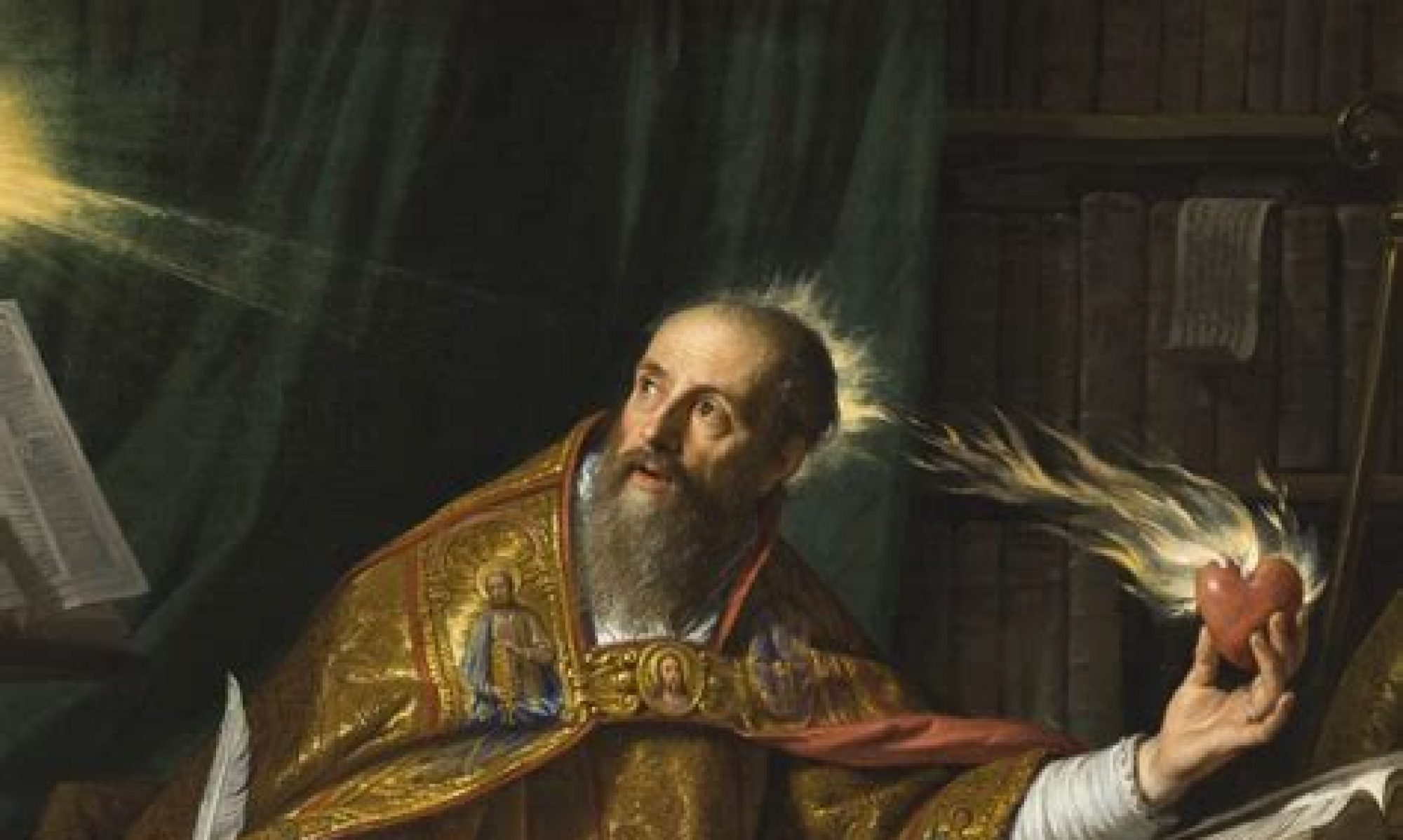We are in the 4th Sunday and a few days of Advent, anticipating the celebration of Christmas. Many would say, at last, the waiting is over! It is the final preparation of ourselves that we can give to God and expecting what special gift God would give us. What are the grace and blessings of this coming year that awaits us? We pray that our season of waiting will indeed surprise us with abundant blessings.
In the past weeks of Advent we encountered the Goodnews about the coming of the Messiah prophesized by many prophets. The first reading from Prophet Micah foretold the apparent abandonment of Israel by God. However, we hear these words of hope that in David’s lineage will be born a child despite that the Lord will “give them up,” but this birth from within the insignificant Bethlehem will signal God’s fidelity to His people. He will be a Shepherd to His people, but “His greatness shall reach the ends of the earth; He shall be peace!” This is the encouragement of Prophet Micah to ancient Israel. The nation waits for a great leader and great King of Israel.
The second reading from the letter to the Hebrews has been linked to the life of ancient Israel on offering the blood of bulls and goats to take away sins, and God continuously reminded them of their guilt. When Christ came into the world, He says, “Sacrifice and offering you took no delight, but a body you prepared for me; with burnt offerings and sin offerings you neither desired nor delighted in.” This means that sacrificial system never works and is not pleasing to God, but the saving work of Jesus is perfectly pleasing to the Father, which began with Jesus’ Incarnation.
The gospel today taken from St. Luke is short, and it narrates to us Mary’s Visitation to her cousin Elizabeth. There are important actions and salutations that express profound teachings which are sometimes easy to overlook.
First, Mary was going with haste to visit her cousin whom she knows to be pregnant despite her old age. In haste is a gesture of great enthusiasm on the part of Mary to lend a hand to Elizabeth. Mary brings joy and love. This reflection gives a clear message this Christmas that having in mind a simple and small gift to be wrapped up always with the divine love in little packages doesn’t matter. They are small and hastily prepared with the same loving hands of God with the intention of doing for others.
Second, Mary is greeted by her cousin, “Blessed are you among women and blessed is the fruit of your womb.” Elizabeth was filled with the Holy Spirit, thrilled with joy, and sang with many praises to Mary, and the infant, John, leaped for joy inside Elizabeth’s womb. Mary had been chosen among all women in her poverty and fulness and becomes a perfect vessel, to be the “New Arch of the Covenant” because of her complete humility, simplicity and trust in God’s plan. These two pious women, Elizabeth and Mary, dwell in the fullness of waiting for the fulfillment of the promise. The joy is in waiting. We too may persevere to wait for His coming in our hearts with unrestrained longing and waiting always being possible.
Third, Elizabeth further said, “And how does this happen to me, that the mother of my Lord should come to me. Blessed are you who believed that what was spoken to you by the Lord would be fulfilled.” Mary is bringing Jesus to her and to us. This is the first Advent, the first coming of so great a promise that Elizabeth accepted to believe, which we now continue to keep and is hard to hide. It is the Good news which Elizabeth found difficult to conceal.
During this period of Advent, we live this experience of joy, longing and desire, not merely waiting for something or for someone, but we wait for its fulness, meaning and importance of its own which is always an affirmation of God’s active presence of fidelity to a covenant desiring an intimate relationship and love. For the gospel says, “Blessed are you who believed that what was spoken to you by the Lord would be fulfilled.” (v. 45)
Remember that Christmas is not only for children, but for us who seek intimacy with God, who humbled Himself to share our humanity; thus, at Christmas we grow up with a sense of worship and adoration to Jesus, who is the reason of our four-week preparation for a meaningful Christmas celebration.
May we continue to use our senses to recognize God, who has come to visit, stay and remain so that we may have life. Like Mary, our life-giving visits remind us that we can handle making the lives of others more uplifting.
Maranatha, Lord Jesus, come.
Fr. Arlon, osa
El Dictado del Corazón Cuarto Domingo de Adviento, Año C
- Miqueas 5:1-4a
- Salmos 80:2-3, 15-16, 18-19
- Hebreos 10:5-10
- Lucas 1:39-45Nos encontramos en el cuarto y último domingo de Adviento, anticipando la celebración de la Navidad. Muchos dirían, ¡por fin, la espera ha terminado! Nuestra preparación final es la que podemos ofrecerle a Dios, esperando el regalo especial que Él nos dará. ¿Cuáles son las gracias y bendiciones que nos aguardan en este nuevo año? Oremos para que nuestra temporada de espera nos sorprenda con abundantes bendiciones.
Durante las semanas pasadas de Adviento, hemos escuchado la Buena Nueva sobre la venida del Mesías, profetizado por muchos profetas. La primera lectura, tomada del profeta Miqueas, habla de la aparente deserción de Israel por parte de Dios. Sin embargo, escuchamos palabras de esperanza: de la descendencia de David nacerá un líder, y aunque el Señor “los entregue”, este nacimiento en el insignificante Belén será la señal de la fidelidad de Dios a Su pueblo. Él será el Pastor de Su pueblo, “Su grandeza llegará hasta los confines de la tierra; Él será la paz”. Esta es la exhortación del profeta Miqueas alIsrael antiguo. La nación espera un gran líder y un gran rey para Israel.
La segunda lectura, tomada de la carta a los Hebreos, conecta la vida de Israel con el antiguo sistema de sacrificios de sangre de toros y cabras para la remisión de los pecados, y cómo Dios constantemente les recordaba su culpa. Cuando Cristo vino al mundo, Jesús dijo: “Sacrificio y ofrenda no quisiste, pero un cuerpo me preparaste; no te complacieron los holocaustos ni los sacrificios por el pecado”. Esto significa que el sistema sacrificial nunca funcionó ni agradó a Dios, pero la obra salvadora de Jesús es perfectamente agradable al Padre y comenzó en la Encarnación de Jesús.
El evangelio de hoy, tomado de San Lucas, es breve y nos narra la Visita de María a su prima Isabel. Hay acciones y saludos importantes que expresan enseñanzas profundas, que a veces es fácil pasar por alto.
Primero, María va con prisa a visitar a su prima, que está embarazada a pesar de su avanzada edad. La prisa es un gesto de gran entusiasmo por parte de María para ayudar a Isabel. María trae alegría y amor. Esta reflexión nos da un claro mensaje para esta Navidad: que incluso el más pequeño y simple de los regalos, envueltos siempre con el amor divino, no importa si son pequeños o apresuradamente preparados; son hechos con las mismas manos amorosas de Dios, con la intención de servir a los demás.
Segundo, cuando Isabel saluda a María, dice: “Bendita eres entre las mujeres y bendito es el fruto de tu vientre”. Isabel, llena del Espíritu Santo, se emociona de alegría y alaba a María, y el niño, Juan, saltó de alegría en el vientre de Isabel. María había sido elegida entre todas las mujeres en su pobreza, llenura y se convierte en un recipiente perfecto, la “Nueva Arca de la Alianza”, por su humildad, simplicidad y confianza en el plan de Dios. Estas dos mujeres piadosas, Isabel y María, viven en la plenitud de la espera por el cumplimiento de la promesa. La alegría está en la espera. Nosotros también debemos perseverar en esperar Su venida en nuestros corazones, con un deseo incontrolable, y siempre la espera será posible.
Tercero, Isabel dice: “¿Y cómo es que la madre de mi Señor viene a mí? Bendita eres tú que has creído que se cumpliría lo que te fue dicho por el Señor”. María está trayendo a Jesús a ella y a nosotros. Esta es la primera venida, la primera llegada de una gran promesa que Isabel aceptó creer, y que ahora continuamos guardando y difícil de ocultar. Es la Buena Nueva que Isabel no podía esconder.
Durante este periodo de Adviento, vivimos esta experiencia de gozo, anhelo y deseo, no simplemente esperando algo o a alguien, sino esperando su plenitud, su significado e importancia, que siempre es una afirmación de la presencia activa de Dios, de fidelidad a un pacto que desea una relación íntima y amorosa con nosotros. Porque el evangelio dice: “Bendita eres tú que has creído que se cumpliría lo que te fue dicho por el Señor” (v. 45).
Recuerden que la Navidad no es solo para los niños, sino para todos nosotros que buscamos la intimidad con Dios, quien se humilló para compartir nuestra humanidad. Así, la Navidad nos hace crecer con un sentido de adoración y veneración hacia Jesús, quien es la razón de nuestra preparación de cuatro semanas para una celebración navideña significativa.
Oremos, para que sigamos usando nuestros sentidos para reconocer a Dios, quien ha venido a visitarnos, quedarse y permanecer, para que podamos tener vida. Al igual que María, digamos si al Señor y llevemos con nosotros a Jesus a los demás para poder hacer la vida de los demás más edificante.
Maranatha, Señor Jesús, ven.
P. Arlon, OSA

